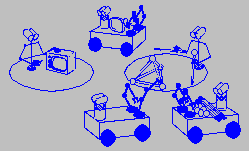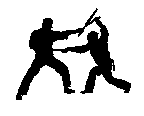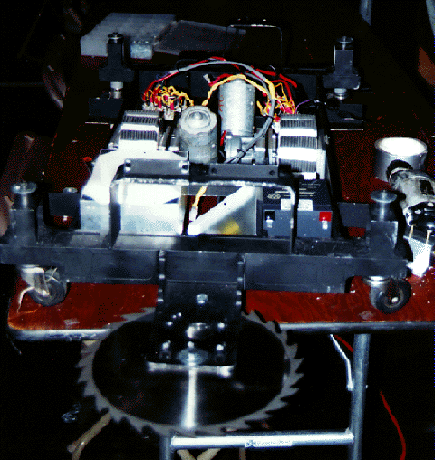


 Concept Map of the Overall Design process for a Robotic Sumo Wrestler
Concept Map of the Overall Design process for a Robotic Sumo Wrestler
Design of the robot consists of two main design activities; development of the robot's control software and development of the robot's hardware systems. The project done for CPSC 679 will deal with the development of part of the robot's control software. Specifically, the CPSC 679 project will aid in determining the compatibility of experts' conceptual structures to optimize the knowledge elicitation process for the control knowledge base. This is required since the control software will be an expert based system. The course project will also aid in the definition of the robot's sensor input requirements.


A different approach will be followed for this project. The underlying motivation is to research adaptive control systems. This precludes the use of primarily mechanical approaches. A robot does not have to be intelligent if its design is focused on indiscriminately destroying opposing robot systems. All that is required, in this case, is the use of overwhelming hardware. Police forces, militaries and martial artists will agree that it requires far less adaptive reasoning capabilities to apply brute, overwhelming force, than it does to apply only the minimum required force. So the approach will be to take advantage of RSW's dynamic and unpredictable environment to advance the development of an adaptive mobile robot control system. The concepts learned in force redirection, positioning and tactical strategies may provide solutions to more mundane obstacle avoidance and path planning issues, currently being addressed by the mobile robot research community.
 Design Considerations for the Design and Architecture of the Robot's Control System
Design Considerations for the Design and Architecture of the Robot's Control System
The design considerations for the robot's control system can theoretically be met by the methods for adaptive control (expert based systems and fuzzy logic controllers) discussed above. Therefore, the knowledge based approach combined with the fuzzy logic controller implementation has been chosen. The knowledge based approach focuses on the use of experts to derive a fundamentals knowledge base. In this case the knowledge base will contain combat strategies for use in the RSW arena. A fuzzy logic controller will use this knowledge base to derive its membership sets and membership functions. Implementation of a fuzzy logic controller allows for variability in the highly dynamic target environment.
